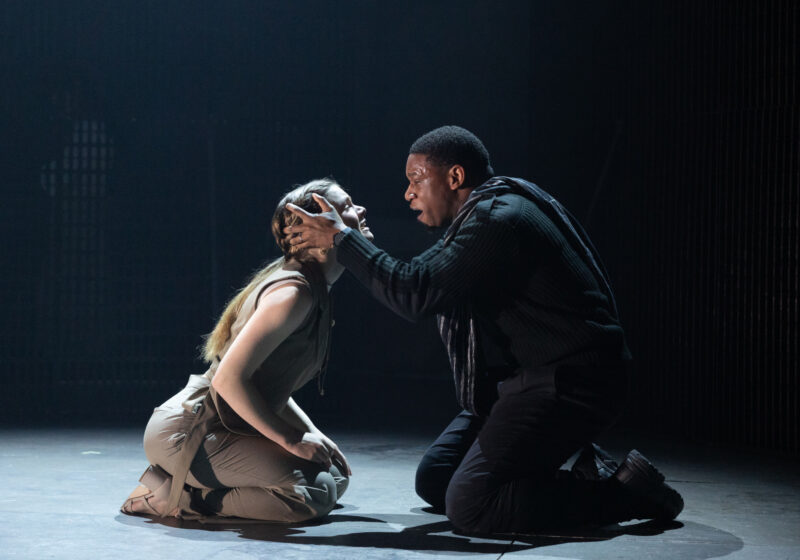Rochester rarely makes appearances in popular fiction, but the Flower City provides the setting for Nell Freudenberger’s novel, “The Newlyweds,” which came out in May of this year. Reading about fictional characters’ visits to Wegmans and other Rochester landmarks should make the novel particularly interesting to native Rochesterians. Unfortunately, readers will probably grow tired of the book’s thinly drawn characters and unwieldy plot.
“The Newlyweds” starts off promising. Amina, a young Bangladeshi woman, has been unable to attend college in her homeland, so she ekes out a living as a high school tutor. This lifestyle is unfulfilling for her, so Amina starts looking beyond her tightly knit Islamic community for opportunities. She dates American men online, hoping to move to the United States, marry, go to college and eventually help her parents emigrate to the country.
Amina forges a connection with George Stillman, an engineer from Rochester, and after George visits Bangladesh, the two marry. Once in America, though, Amina finds that life is not precisely idyllic. George is pleasant, but dull, and the recession complicates Amina’s plan to work and simultaneously attend college.
Her life briefly grows more fulfilling upon the arrival of Kim, George’s New Age-y cousin. The pages describing the friendship of these women are without question the best part of the novel — however, the bond between the two women is torn apart when troubling details about the Stillman family come to light. Not long after, Amina returns to Bangladesh to help her parents emigrate to the U.S., only to be tempted by an old flame and endangered by an unhinged relative. By this point, the book has become overly melodramatic, and it soon comes to an extremely abrupt ending.
Freudenberger’s narrative trajectory — beginning in a war-torn country, shifting to the U. S. and then returning to the protagonist’s homeland, where dangers and old memories abound — bears more than a passing resemblance to the plot of Khaled Hosseini’s “The Kite Runner.” There are several crucial differences, though, between “The Kite Runner” and “The Newlyweds.” “The Kite Runner” knew exactly what it was about (i.e., the themes of cowardice and redemption), and its plot featured many strong characters. “Newlyweds” cannot seem to decide if it is a story of culture shock, a character study, or a rumination on recent world history.
Additionally, Freudenberger’s Bangladeshi villain (the dangerous cousin, Salim) never actually encounters Amina, and so he seems somewhat irrelevant to the main story.
Amina is a spunky, likeable protagonist and a polite observer of American ignorance, but she grows less relatable during her return to Bangladesh. This ambitious woman attains nearly everything she wanted at the start of the book, yet she inexplicably grows indecisive and wistful during the last hundred pages. It is as if Freudenberger decided to completely change Amina’s nature, rendering her an overly passive character after 300 pages of decisive behavior. The change in Amina’s characterization is jarring and further indicates that Freudenberger’s book lacks a sufficient degree of structure.
The other characters in “The Newlyweds” range from sharply defined to bland. George is an odd and somewhat sad character in the scenes where he has actual dialogue, but is largely left out of the action. Kim is arguably the most fascinating person in the novel — she is a sweet woman capable of lavish acts of kindness, but she is also a habitual liar, constantly revising her life story to justify her mistakes to others (and to herself). Regrettably, Kim, like her cousin George, is underused throughout the storyline.
Still, Freudenberger’s book is not a complete failure. The middle portion of the novel, regarding Amina’s education at Monroe Community College (MCC) and her increasingly troubled marriage, is genuinely compelling. Passages about the founding of modern Bangladesh contain some truly beautiful writing, even as they describe brutal acts of war. Freudenberger also succeeds in making Rochester come alive on the page — she describes its numerous neighborhoods, diverse economy and even the Pittsford Wegmans in careful detail (the only real geographical error in the book is the claim that MCC is within walking distance from the Starbucks on Monroe Avenue).
Freudenberger has given her readers a moderately interesting protagonist in Amina, a brilliant supporting character in Kim and a rich portrayal of life in Rochester, but she otherwise fails to make “The Newlyweds” a truly memorable or thematically coherent novel. The book is worth skimming, but certainly not purchasing.
Gorman, Jr. is a member of the Class of 2014.






